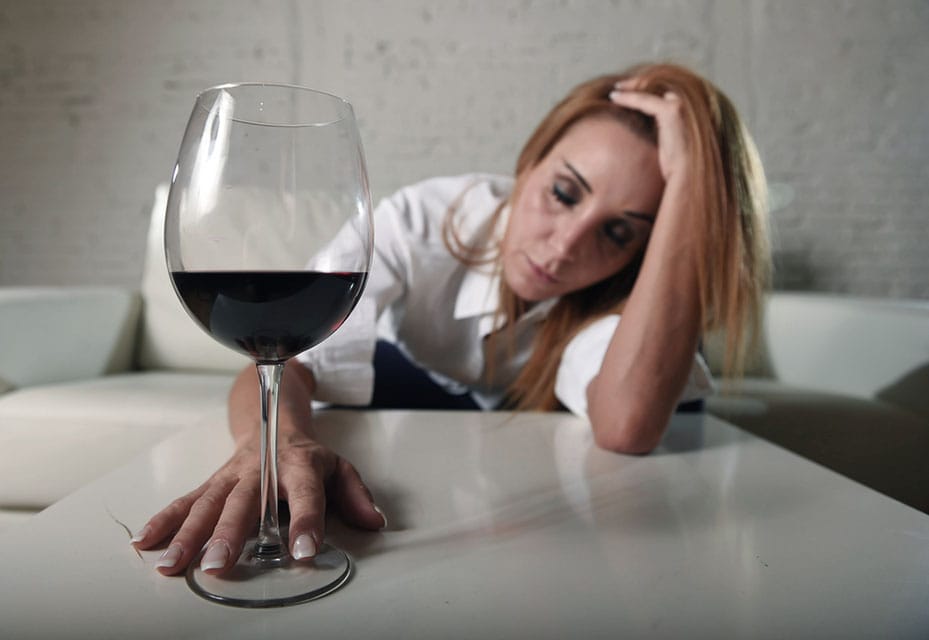Drinking alcohol is legal for anyone over 21, but it comes with a serious risk of addiction. Alcohol misuse is a widespread health issue in the U.S., with millions struggling daily to control their drinking. If you’re facing alcohol use disorder, there are effective treatment programs available to help you safely overcome symptoms and achieve lasting sobriety.
At The Ranch, we welcome individuals from all backgrounds dealing with substance use disorders—whether it’s alcohol or other harmful substances like cocaine, heroin, or meth. Our alcohol rehab program in Nashville is dedicated to supporting those whose health is at risk from alcohol misuse and who are ready to reclaim their lives. Through a combination of group and individual therapy, you’ll gain a deeper understanding of the dangers of alcohol abuse and develop the tools to manage triggers and build healthier habits for the future.
How To Spot Problem Drinking in a Loved One
If you drink alcohol, you’re likely familiar with its ability to create feelings of relaxation, euphoria, and sociability. However, you might not realize how easily alcohol can lead to addiction if consumed irresponsibly. Problem drinking often involves regularly consuming excessive amounts of alcohol. For women, this means more than 3 drinks per sitting or 7 drinks per week. For men, it’s more than 4 drinks per sitting or 24 drinks per week.
A common form of problem drinking is binge drinking—rapidly consuming large amounts of alcohol with the intent of becoming intoxicated. This behavior is especially prevalent among young adults and college students and is often a red flag for harmful drinking habits. Regular binge drinking significantly increases the risk of developing alcohol use disorder and poses serious long-term health risks. These include chronic liver and kidney diseases, as well as an elevated risk of certain cancers, such as esophageal, liver, breast, and colorectal cancer.
Understanding these risks is the first step toward making healthier choices and avoiding the dangers of problem drinking.
Other Signs of Alcohol Abuse
Binge drinking is often a clear indicator of a drinking problem. Other common signs of alcohol abuse include:
- Hiding their drinking from friends or family.
- Masking the smell of alcohol with gum or mints.
- Visiting multiple liquor stores to conceal the amount of alcohol they purchase.
- Struggling to keep up with work, school, or personal responsibilities.
- Sneaking several drinks at social gatherings.
- Experiencing memory blackouts during or after drinking.
- Finding themselves unable to stop drinking without help.
If you notice any of these warning signs, the most effective way to address alcohol abuse is by seeking help through a professional alcohol rehab program.
Treating Alcohol Use Disorders
Alcohol use disorder is a treatable mental health condition that responds well to a combination of therapeutic approaches. Behavioral therapy is a cornerstone of treatment, often complemented by medication, life skills training, and holistic therapies.
Cognitive-Behavioral Therapy (CBT)
Cognitive-behavioral therapy is one of the most effective methods for overcoming addiction. This therapy focuses on identifying and addressing behaviors linked to addiction while uncovering the triggers behind cravings. Through CBT, therapists teach healthier coping mechanisms to replace harmful behaviors, helping to reduce the risk of relapse.
In addition to CBT, other behavioral therapies can play a critical role in treating alcohol use disorder, including:
- Dialectical behavior therapy (DBT)
- Acceptance and commitment therapy (ACT)
- Motivational interviewing (MI)
- Eye movement desensitization and reprocessing (EMDR)
- Relapse prevention therapy
Each treatment plan is tailored to the individual, ensuring that the therapeutic strategies align with the unique symptoms and challenges a person faces. With a personalized, evidence-based approach, recovery is not only possible but sustainable.
Medication-Assisted Treatment
Medications play a crucial role in managing withdrawal symptoms and cravings during addiction treatment. They help alleviate discomfort safely, allowing you to focus on your recovery. Under the supervision of medical professionals, medications are administered as part of your personalized treatment plan. The medical team carefully monitors for any side effects and adjusts the dosage if needed. As your withdrawal symptoms subside, the medication will be gradually tapered off until it is no longer required.
Family Counseling
Addiction doesn’t just affect the individual—it impacts loved ones and can strain family relationships. To address these challenges, family therapy is an integral part of the recovery process. This program involves all family members and aims to resolve lingering conflicts that could hinder progress. Through therapy, families learn about addiction, the recovery journey, and how they can support their loved one’s healing while fostering healthier relationships.
Enroll in Alcohol Rehab in Nashville Today at The Ranch
The Ranch is a fully accredited addiction treatment center dedicated to helping Nashville residents overcome alcohol use disorder. Upon your arrival, we will conduct a comprehensive health assessment to evaluate the severity of your addiction and identify your specific symptoms. This allows us to design a personalized treatment plan tailored to your needs, incorporating medication-assisted treatment, cognitive-behavioral therapy, and other proven programs to support your recovery.
If you’re ready to take the first step, our team is here to help. Contact us today by filling out our online form or calling 1.844.876.7680 to schedule a consultation and tour.


